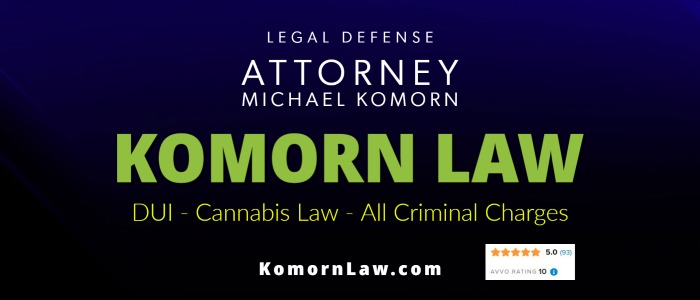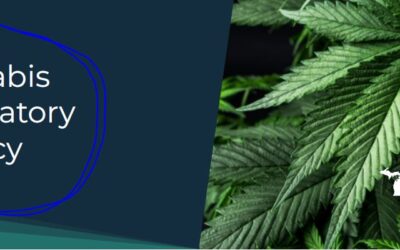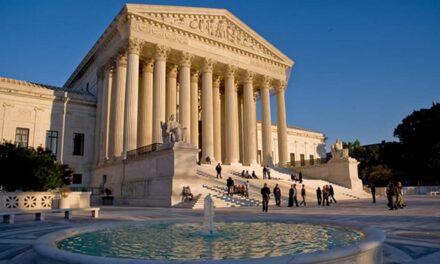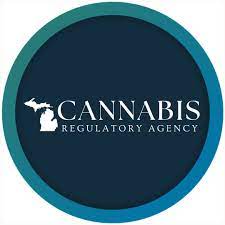A bill that was enacted into California law in 2024 makes it against the law for employers to “discriminate against a person… if the discrimination is based upon the person’s use of cannabis off the job and away from the workplace.”
The bill offers marijuana users in California an added layer of protection, but does it imply a complete ban on marijuana testing by employers in the state?
Testing at Work
The new law, Assembly Bill 2188, clearly states that employers cannot terminate employees based on the presence of cannabis in their hair, blood, or urine. Furthermore, it is now against the law for employers to inquire about an applicant’s consumption of cannabis or marijuana.
This means that individuals who have previously used marijuana cannot face penalties for their past use. Furthermore, individuals are protected from any penalties for using marijuana outside of the workplace and during non-working hours.
Affects Mental Processes
AB 2188 often mentions the “psychoactive” properties of cannabis Defined by the World Health Organization as this -> Definition <.
While the bill provides certain protections, it remains illegal to be under the influence of marijuana or bring it into the workplace.
AB 2188 specifically mandates drug tests to identify impairing effects, and standard marijuana tests do not detect any factors that could adversely affect an employee’s performance.
While it is widely acknowledged that employees should not arrive at a worksite while under the influence or impaired, it is important to note that most cannabis tests only indicate the presence of the nonpsychoactive cannabis metabolite. These test results do not demonstrate any correlation with job impairment.
However, it should be noted that there are additional types of tests that are allowed and these tests do not assess the existence of nonpsychoactive cannabis metabolites.
The purpose of drug tests is to identify potentially impaired employees. These alternative tests encompass impairment tests, which gauge an individual employee’s performance against their own baseline, as well as tests that detect the presence of THC in an individual’s bodily fluids, as indicated by the bill.
What about Michigan?
(FOX 2) –
Next month marks the end of drug tests probing for marijuana use among some of the government’s tens of thousands of employees who work for the state of Michigan.
Following a summer vote by members on the Michigan Civil Service Commission who unanimously agreed to remove marijuana from the pre-employment drug testing protocols, the state policy will kick in at the beginning of October.
Here is the California bill
Assembly Bill No. 2188
CHAPTER 392
An act to add Section 12954 to the Government Code, relating to employment.
[ Approved by Governor September 18, 2022. Filed with Secretary of State September 18, 2022. ]
LEGISLATIVE COUNSEL’S DIGEST
AB 2188, Quirk. Discrimination in employment: use of cannabis.
Existing law, the California Fair Employment and Housing Act, protects and safeguards the right and opportunity of all persons to seek, obtain, and hold employment without discrimination, abridgment, or harassment on account of race, religious creed, color, national origin, ancestry, physical disability, mental disability, medical condition, genetic information, marital status, sex, gender, gender identity, gender expression, age, sexual orientation, or military and veteran status. The act prohibits various forms of employment discrimination and empowers the Civil Rights Department to investigate and prosecute complaints alleging unlawful practices.
This bill, on and after January 1, 2024, would also make it unlawful for an employer to discriminate against a person in hiring, termination, or any term or condition of employment, or otherwise penalize a person, if the discrimination is based upon the person’s use of cannabis off the job and away from the workplace, except for preemployment drug screening, as specified, or upon an employer-required drug screening test that has found the person to have nonpsychoactive cannabis metabolites in their hair, blood, urine, or other bodily fluids. The bill would exempt certain applicants and employees from the bill’s provisions, including employees in the building and construction trades and applicants and employees in positions requiring a federal background investigation or clearance, as specified. The bill would specify that the bill does not preempt state or federal laws requiring applicants or employees to be tested for controlled substances as a condition of employment, receiving federal funding or federal licensing-related benefits, or entering into a federal contract.
DIGEST KEY
Vote: majority Appropriation: no Fiscal Committee: yes Local Program: no
BILL TEXT
THE “PEOPLE” OF THE STATE OF CALIFORNIA DO ENACT AS FOLLOWS:
SECTION 1.
The Legislature finds and declares both of the following:
(a) Tetrahydrocannabinol (THC) is the chemical compound in cannabis that can indicate impairment and cause psychoactive effects. After tetrahydrocannabinol is metabolized, it is stored in the body as a nonpsychoactive cannabis metabolite. These metabolites do not indicate impairment, only that an individual has consumed cannabis in the last few weeks.
(b) The intent of drug tests is to identify employees who may be impaired. While there is consensus that an employee should not arrive at a worksite high or impaired, when most tests are conducted for cannabis, the results only show the presence of the nonpsychoactive cannabis metabolite and have no correlation to impairment on the job.
(c) As science has improved, employers now have access to multiple types of tests that do not rely on the presence of nonpsychoactive cannabis metabolites. These alternative tests include impairment tests, which measure an individual employee against their own baseline performance and tests that identify the presence of THC in an individual’s bodily fluids.
SEC. 2. Section 12954 is added to the Government Code, to read:
12954. (a) It is unlawful for an employer to discriminate against a person in hiring, termination, or any term or condition of employment, or otherwise penalizing a person, if the discrimination is based upon any of the following:
(1) The person’s use of cannabis off the job and away from the workplace. This paragraph does not prohibit an employer from discriminating in hiring, or any term or condition of employment, or otherwise penalize a person based on scientifically valid preemployment drug screening conducted through methods that do not screen for nonpsychoactive cannabis metabolites.
(2) An employer-required drug screening test that has found the person to have nonpsychoactive cannabis metabolites in their hair, blood, urine, or other bodily fluids.
(b) Nothing in this section permits an employee to possess, to be impaired by, or to use, cannabis on the job, or affects the rights or obligations of an employer to maintain a drug- and alcohol-free workplace, as specified in Section 11362.45 of the Health and Safety Code, or any other rights or obligations of an employer specified by federal law or regulation.
(c) This section does not apply to an employee in the building and construction trades.
(d) This section does not apply to applicants or employees hired for positions that require a federal government background investigation or security clearance in accordance with regulations issued by the United States Department of Defense pursuant to Part 117 of Title 32 of the Code of Federal Regulations, or equivalent regulations applicable to other agencies.
(e) This section does not preempt state or federal laws requiring applicants or employees to be tested for controlled substances, including laws and regulations requiring applicants or employees to be tested, or the manner in which they are tested, as a condition of employment, receiving federal funding or federal licensing-related benefits, or entering into a federal contract.
(f) This section shall become operative on January 1, 2024.
RESTORE YOUR SECOND AMENDMENT RIGHTS
RESTORE YOUR PROFESSIONAL LICENSE
RESTORE YOUR DRIVER LICENSE
RESTORE YOUR PAST
Call our Office for a free case evaluation
Komorn Law (248) 357-2550
(tap here to call now)
Professional License Restoration / Rights Restoration / Record Expungments / Driver License Restoration
More Posts
CRA News Links – December 2024
The Michigan Cannabis Regulatory Agency - Making sure you get good weed. Cannabis Regulatory...
Cannabis Regulatory Agency Answers Questions About THCA
The Cannabis Regulatory Agency (CRA) is issuing this communication to answer recent questions that...
Authorities seize 90 pounds of fentanyl in Livonia Michigan
Livonia traffic stop leads to largest fentanyl bust in Michigan history, police say Authorities...
Cannabis Regulatory Agency 3 Year Enforcement Plan
What's the Cannabis Regulatory Agency's 3 Year Enforcement Plan in Michigan?Mission: The Cannabis...
Cannabis regulator takes too long to crack down on businesses
A state audit found that Michigan's marijuana regulator, the CRA, takes up to two years to...
CRA News Releases
Cannabis Regulatory Agency Reminds Licensees about Marijuana Event Organizer and Temporary...














